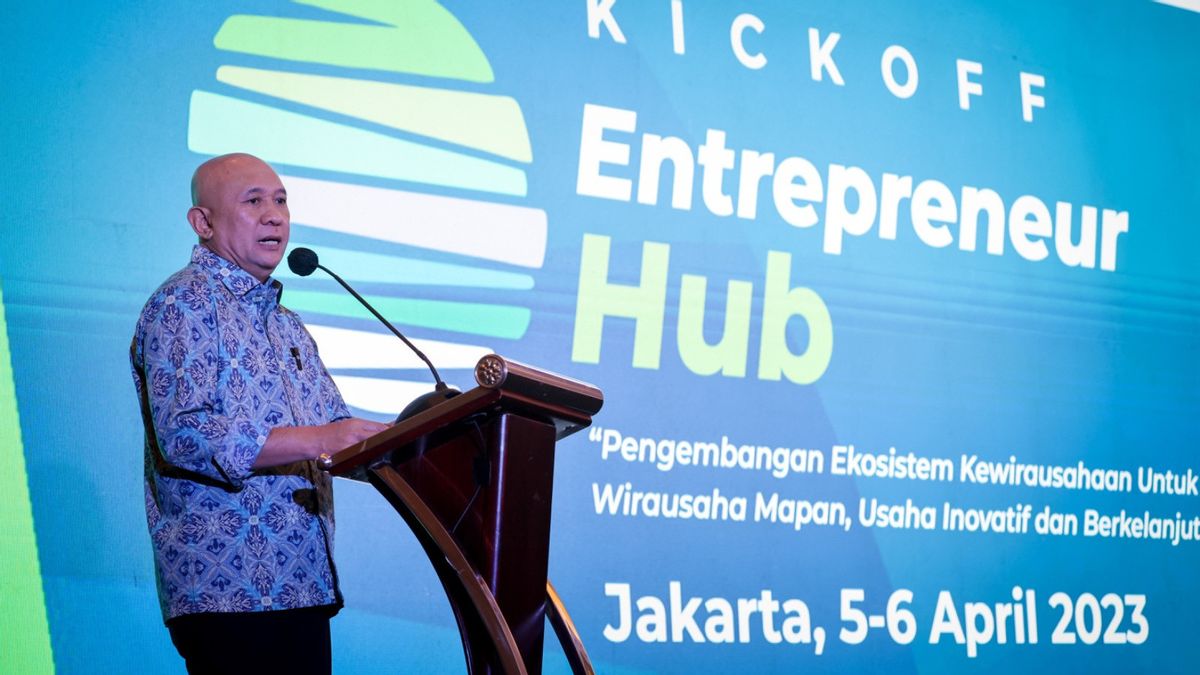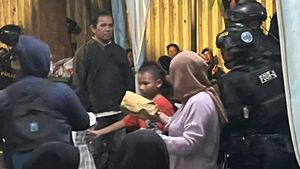The Ministry of Cooperatives and SMEs (Kemenkop UKM) is organizing the Jakarta Hub Entrepreneur program as an effort to accelerate the 2020-2024 National Medium-Term Development Plan (RPJMN) target in the form of an entrepreneurial ratio of 3.95 percent.
To increase the entrepreneurship ratio, the Ministry of Cooperatives and SMEs also cooperates with various parties or collaborators, such as the DKI Jakarta Provincial Industry, Trade, Cooperatives and SMEs Office, as well as the Above Hand Community.
Then, there are universities, including Bina Nusantara University, Jakarta State University, Mercu Buana University, Podomoro University, and Trisakti University, as well as other private sectors, such as BTPN, PVG, Indonesian Zakat House.
Minister of Cooperatives and SMEs (MenKopUKM) Teten Masduki said, Indonesia needs to prepare reliable entrepreneurs, although the number of MSMEs is quite large, reaching 64 million, but most of them are still on a micro business scale or subsistent economy.
"What needs to be prepared really is the desire to become an entrepreneur. In developed countries, the entrepreneurship ratio reaches 10 to 12 percent. Indonesia must be able to produce highly educated young people who enter the business world, encourage young people to do business, so that our entrepreneurs can compete in the world arena," said Teten in a written statement in Jakarta, Wednesday, April 5.
Teten said that his party has an ambitious target, of which one million new entrepreneurs can be born in 2024 in the process of going to developed countries. However, there are still several things that need attention and hard work, in order to lead Indonesia to become a developed country.
"So far, we have also encouraged the development of an entrepreneurial ecosystem, for example an ecosystem that is connected to digital so that MSME actors can more easily access financing. MSMEs are also connected to industrial supply chains, become suppliers of raw materials components, and finished goods," he said.
"So, MSMEs are not marginalized, remain an industrial supply chain, part of industrialization," added Teten.
He said, currently only about seven percent of MSMEs are included in the supply chain of the Indonesian industry. Therefore, the formation of KUR Cluster needs to be encouraged by the ecosystem, so that those who have connected the digital ecosystem to the supply chain, can later make it easier for banks to provide loans.
"This includes encouraging the consolidation of small businesses to cooperatives. Micro business actors find it difficult to advance to class if they do business individually, by joining cooperatives it will make it easier for micro-enterprises to grow. Government spending of 40 percent to MSME products is also part of the ecosystem in ensuring that MSMEs have a captive market," he said.
Meanwhile, Deputy for Entrepreneurship of the Ministry of Law and Human Rights, Siti Azizah, explained that the Entrepreneur Hub is a synergy of various parties who have successfully curated as many as 100 competent MSME players who are proposals from the DKI Jakarta Provincial Industry, Trade, Cooperatives and SMEs Office, the Upper Hand Community, and 5 Universities.
"Entrepreneur HUB Jakarta is one of a series of Entrepreneur Hub programs as a whole. The program is one of the leading activities of the Deputy for Entrepreneurship whose main goal is to grow young Indonesian entrepreneurs through the development of business ecosystems in the regions," he added.
This activity will be carried out for three months, starting from kick-off on April 4-6 2023. The kick-off agenda contains participant training and mentoring which will be equipped with material in 11 sustainable modules. Later, these modules will be implemented in five main sessions in stages.
The English, Chinese, Japanese, Arabic, and French versions are automatically generated by the AI. So there may still be inaccuracies in translating, please always see Indonesian as our main language. (system supported by DigitalSiber.id)













